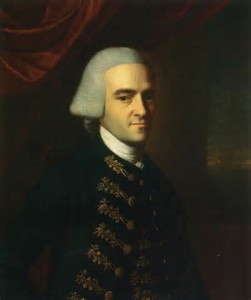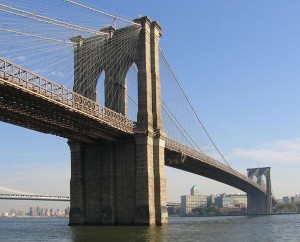May 24 is: National Escargot Day
National Patriots Day (Quebec)
May 24, 1689, English Parliament guaranteed freedom of religion for Protestants
John Wesley was converted on May 24, 1738, in a meeting room on Aldersgate Street, London. This essentially launched the Methodist movement. The day is celebrated annually by Methodists as Aldersgate Day and a church service is generally held on the preceding Sunday.
 1775 John Hancock was unanimously elected President of the Second Continental Congress, replacing Peyton Randolph. The Second Congress convened on May 10, 1775 with representatives from 12 of the colonies in Philadelphia, Pennsylvania shortly after the battles of Lexington and Concord,
1775 John Hancock was unanimously elected President of the Second Continental Congress, replacing Peyton Randolph. The Second Congress convened on May 10, 1775 with representatives from 12 of the colonies in Philadelphia, Pennsylvania shortly after the battles of Lexington and Concord,
1818 General Andrew Jackson captured Pensacola, Florida
1844 – Samuel Morse sent the message “What hath God wrought” (a biblical quotation, Numbers 23:23) from the Old Supreme Court Chamber in the United States Capitol to his assistant, Alfred Vail, in Baltimore, Maryland, to inaugurate the first telegraph line.
Birthday of Lillian M Gilbreth (May 24, 1878), engineer and pioneer in time-motion studies. Part of the American literary scene with the publication of Cheaper by the Dozen by Frank B. Gilbreth, Jr., her son.
1830 – Mary Had a Little Lamb by Sarah Josepha Hale was published. The rhyme is also famous for being the very first thing recorded by Thomas Edison on his newly invented phonograph in 1877.
Mary had a little lamb,
its fleece was white as snow,
And everywhere that Mary went,
The lamb was sure to go;He followed her to school one day–
That was against the rule,
It made the children laugh and play,
to see a lamb at school.
 The Brooklyn Bridge in New York City is opened to traffic May 24, 1883 by President Arthur and NY governor Cleveland. Construction began in 1869. The bridge connects the boroughs of Manhattan and Brooklyn by spanning the East River.
The Brooklyn Bridge in New York City is opened to traffic May 24, 1883 by President Arthur and NY governor Cleveland. Construction began in 1869. The bridge connects the boroughs of Manhattan and Brooklyn by spanning the East River.
1918 Cleveland Indians Stan Coveleski sets club record for most innings pitched (19) as the Indians beat the Yankees 3-2.
The star of the Indians pitching staff, he won over 20 games each year from the epidemic-shortened 1918 season through 1921, leading the AL in shutouts twice and in strikeouts and earned run average (ERA) once each during his nine years with the club. The star of the 1920 World Series, he led the Indians to their first championship with three complete-game victories, including a 3–0 shutout in the Game 7 finale.
(On May 1, 1920 the Brooklyn Robins went to play the Boston Braves at Boston, in front of a crowd of 2,000 spectators. Leon Cadore was the starting pitcher for the Robins and Joe Oeschger pitched for the Braves. The game was held scoreless until the fifth inning, when Ernie Krueger scored on Ivy Olson RBI single. The game was tied in the sixth when Walton Cruise tripled, then scored on Tony Boeckel single. The game was ruled as a tie after 26 innings because of darkness. Oescheger only gave up 9 hits the entire game, while Cadore allowed 15. If they had played one more inning the pitchers would have played the equivalent of three games.) See comment by Christie Stone below.
1935 – The first night game in Major League Baseball history is played in Cincinnati, Ohio, with the Cincinnati Reds beating the Philadelphia Phillies 2-1 at Crosley Field. 632 individual lamps in eight metal stanchions were erected. In the White House, President Franklin D. Roosevelt pressed a button that lit up Crosley Field, where a crowd of 20,422 fans, sizable for a last-place team in the middle of the Great Depression, came out to watch the game.

Pitcher Joe Oeschger pitched a 20 inning 9-9 tie as a member of the Philadelphia Phillies against Brooklyn on April 3, 1919, thus becoming the only pitcher to pitch 20+ innings in a game twice in baseball history. Both ties!
He was a member of 1915 Phillies World Series champions and when the Phils next played in a World Series (1983) they honored him by letting him throw the ceremonial first pitch before Game 3 at age 91. He died at age 94.
NOTE: Baltimore beat Philadelphia, 4 games to 1.